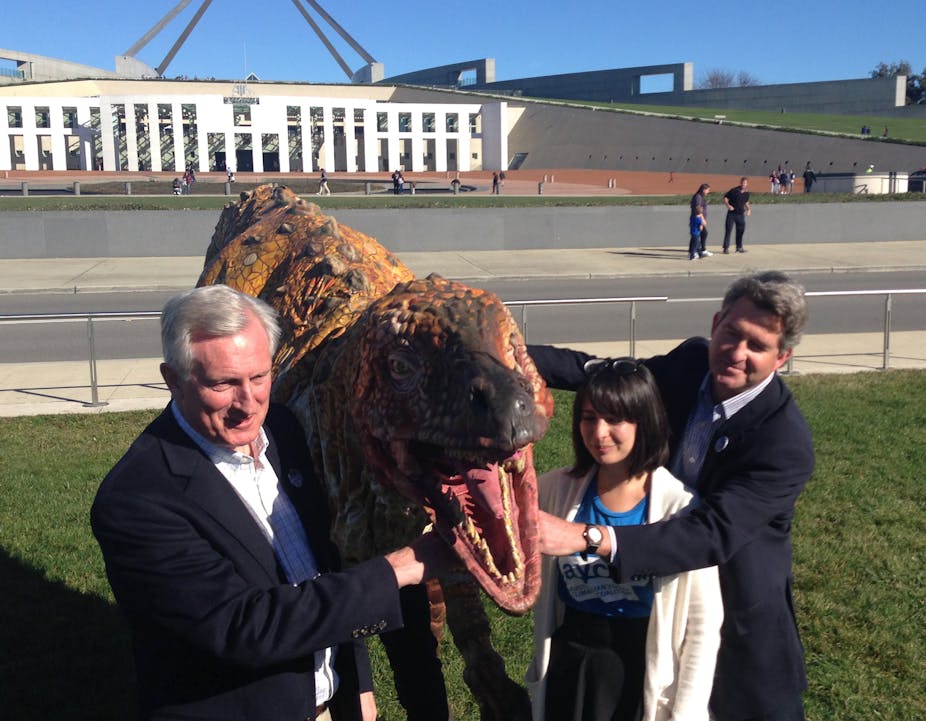Australians are deeply cynical about both sides’ approach to climate change but especially mistrust Tony Abbott’s attitude, according to polling released by the Climate Institute on the eve of the reintroduction of the legislation to scrap the carbon tax.
Only one in five (20%) trust Abbott when he says he is concerned about addressing climate change, while 53% do not.
About three in ten (31%) trust Bill Shorten when he says he’s concerned, compared with 32% who do not.
Some one in five (19%) agree the Coalition has an effective plan to tackle climate change; around one in four (26%) agree Labor does.
The Institute’s Climate of the Nation 2014 survey of 1145 people in May benchmarks public attitudes against similar polling in 2013 and 2012 and in some cases earlier. It was done by JWS Research. The full report will be launched by independent MP Cathy McGowan today.
The Climate Institute’s CEO John Connor said the polling showed a rebound in people’s desire to see Australia lead in finding climate solutions. The recently-released Lowy poll also found concern about climate change rising in the last couple of years, after a period of decline.
The Climate of the Nation poll showed that for the first time, more Australians support the carbon pricing laws than oppose them - 34% (up 6 points from 2012), support them, while 30% oppose (down 22 points from 2012).
Nearly half (47%) now think carbon pricing is better than taking no action, a rise of 8 points from 2012; support for the Coalition’s “direct action” replacement plan is just 22%.
Connor said: “Opposition to carbon pricing has continued to decline and, as in other polls, there is a decline in the minority supporting repeal. For the first time more support carbon pricing than oppose it but there is still uncertainty about its benefits and its operation, while only around one in five Australians think that the government’s alternative is credible.”
Australians overwhelmingly think climate change is occurring (70%, up 10 points from 2012), while 61% want Australia to be a leader in climate solutions (up 9 points from 2012 and on the rise for a second year running after the low points in 2012).
The federal government is seen as most responsible for addressing climate change. But people have little faith in its performance, significantly lower than a year ago, and even lower than in 2012 when the battle over carbon pricing was raging.
A clear majority (57%) think the Abbott government should take climate change more seriously. Some 46% think the current Australian target of reducing emissions by 5% on 2000 levels by 2020 is too low.
Support for renewable energy is strong with more than seven in ten saying the Renewable Energy Target should be at least 20% by 2020 or higher.
The present target is for 20% of Australia’s electricity to come from renewable energy, such as wind, hydro and solar power, by 2020. There is a review of renewable currently under way, with considerable speculation about the future of the target.
Former Liberal leader John Hewson yesterday joined the launch of the Climate Institute’s “Stop the Dinosaurs” campaign urging parliament to maintain the carbon and renewable energy laws which the government is expecting the new post-July 1 Senate to repeal.
Abbott repeated that scrapping the carbon tax would save the typical household about $550 a year. “Electricity prices will be lower – by about 9% - and everyone benefits from lower power prices – from the local butcher running fridges and restaurants running ovens, to our largest manufacturers exporting to the world. And every hospital, school and charity will benefit when power and gas bills fall.” He said Labor still could not admit that it was wrong on the carbon tax,
“Scrapping the carbon tax is a vital part of this government’s economic action strategy because the carbon tax is bad for jobs, it hurts families and it doesn’t help the environment.”

